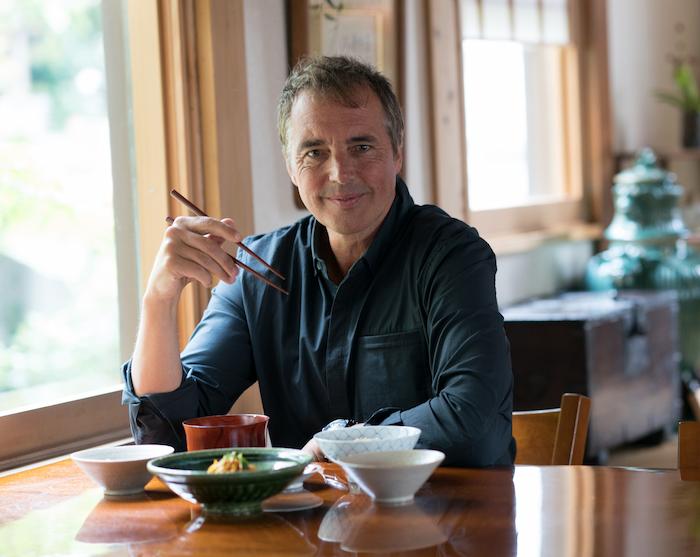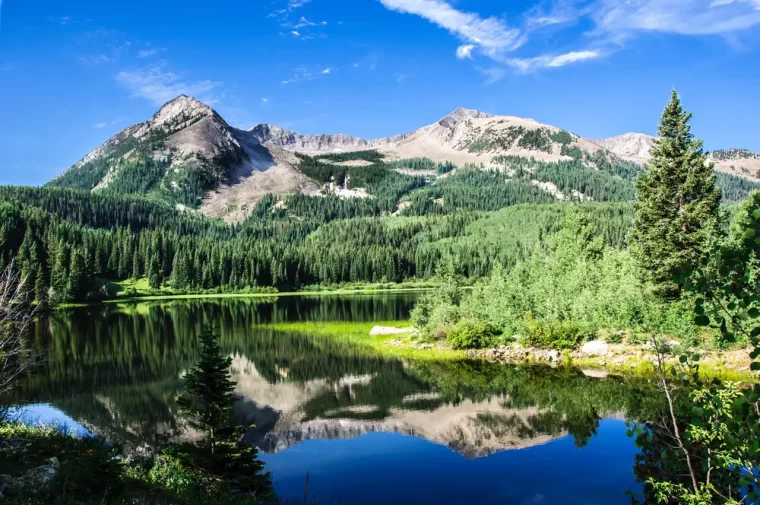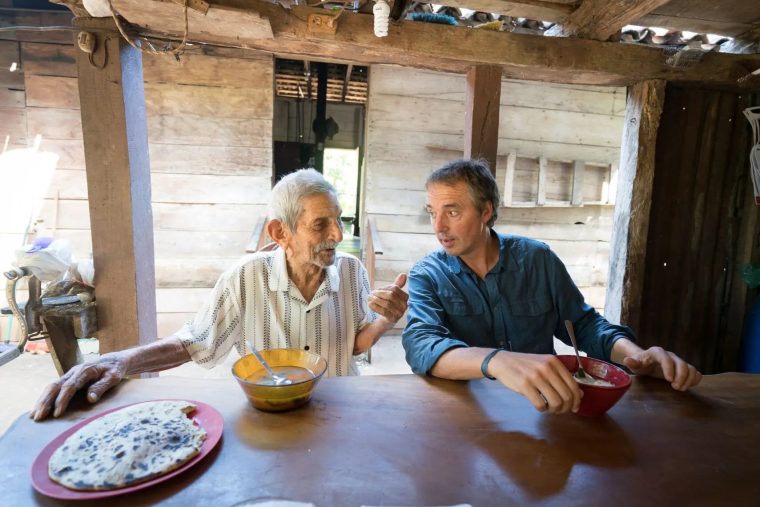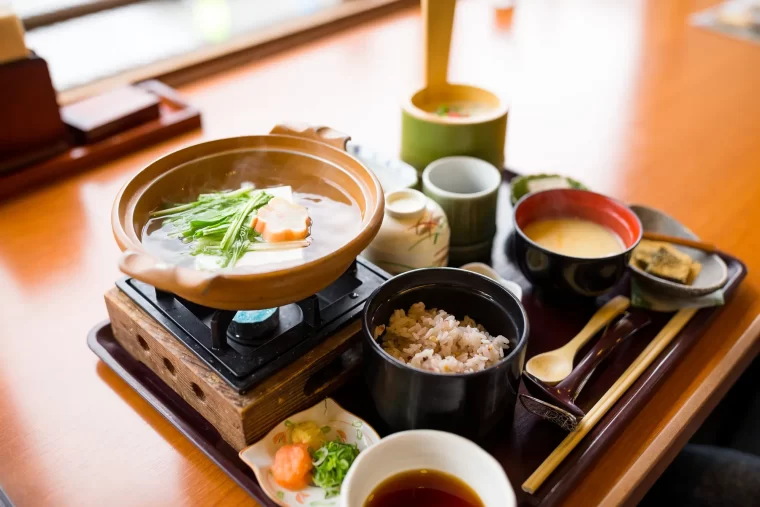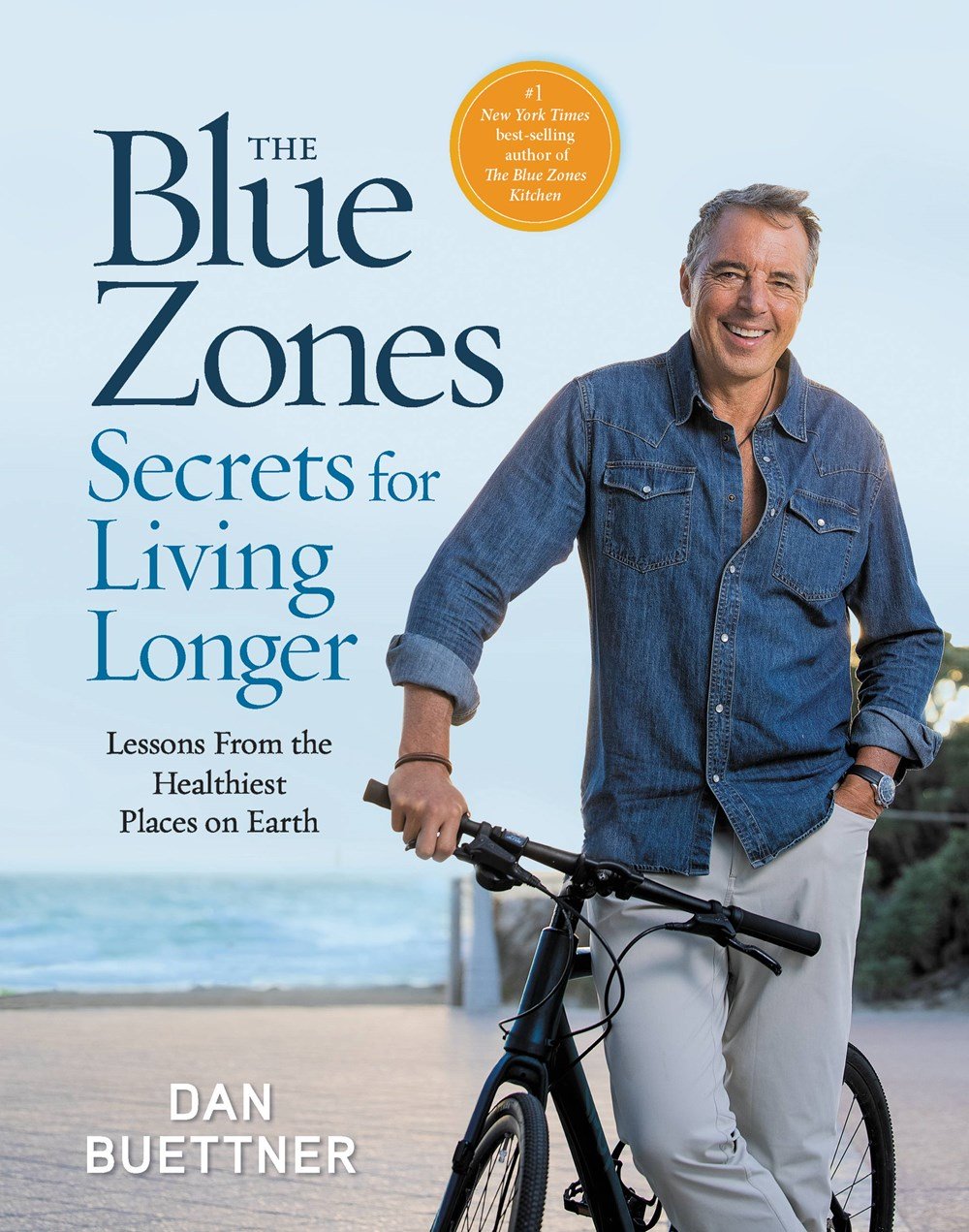I’m doing something a little different in this edition of Eating to 100. Whereas I typically touch on multiple Blue Zones related topics on how and what people in the Blue Zones eat, today I’m going to focus everything around a topic people get very passionate about:
Coffee.
My social media community went wild when I said this on Instagram:
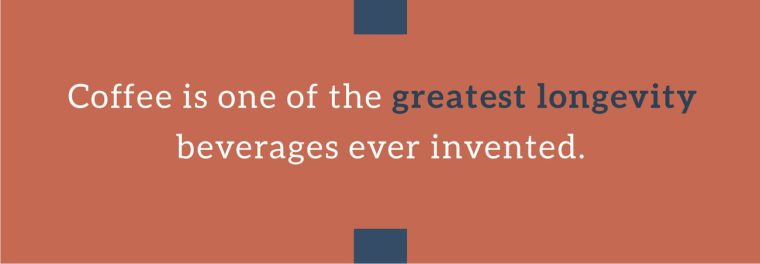
Most were thrilled by the news that their daily habit is a healthy one shared by blue-zone centenarians, while others had questions… and a few thought I’m all out crazy.
There’s only so much I can share on social media, and Eating to 100 is the best place to take a deep dive into the health benefits of coffee, and answer some common questions.
First, let’s take a look at what the data tells us. As you might know by now, I identify what appears to be contributing to longevity of people in the Blue Zones, and reverse engineer it based on what the science says.
Here’s what we know about about coffee: According to multiple peer-reviewed and reputable studies, up to 3 cups of black coffee per day (not the stuff that’s been pumped full of cream and syrups) can reduce risk of developing Parkinson’s Disease, type 2 diabetes, heart disease, several types of cancer, and even depression and suicide. It increases mental alertness, and improves endurance and stamina with physical activities. Recents studies are also showing that coffee drinkers tend to have a lower risk of early death.
Having said all that, it’s important to remember that other lifestyle factors may come into play with these studies. Some studies account for lifestyle influencing outcomes, while others do not. Based on what we’ve learned from the Blue Zones, there is no single habit that will enable you to live to 100 – it’s a mix of factors that contribute, including daily movement, strong social connections, eating a plant-heavy diet, and so on.
Sure, coffee (and caffeine generally) isn’t for everyone. Some people are slow caffeine metabolizers and will suffer uncomfortable side effects by drinking coffee. No, this doesn’t mean you don’t have a shot at making it to 100+. It simply means coffee isn’t right for your body. And don’t forget – Adventists don’t typically drink coffee (or any caffeine containing beverages), and Okinawians prefer tea. Plus, there are plenty of other longevity beverages you can try, including a range of herbal teas.
So whether or not coffee is right for you, read on to learn more about the benefits, answers to common questions, one of the healthiest coffee recipes, and why sharing coffee with friends is ideal. The good news is, if coffee is part of your morning ritual, it can be one of the best things you do to live a long and healthy life.
And for those of you who wish I’d said wine was one of the healthiest beverages…don’t worry, I’ll be talking about that soon!

The canister of coffee in your cupboard might be one of the healthiest items in your pantry.
Coffee just happens to be one of the top sources of antioxidants in the American diet (and the diet of many other Western countries). Now, to be honest, that’s not saying a lot for a country famously dependent on unhealthy, processed foods and meat-heavy diets. But it’s important to help people identify the areas where they are getting things right. As long as you’re drinking up to 3 cups of black coffee per day, you’re getting something very right. And by the way, 1-cup of coffee isn’t a giant mug; it’s typically 4-6 ounces.
When I talk about coffee as a longevity beverage, I typically get some common questions that I thought I’d answer here:
“Does decaf have the same benefits?”
Yes, decaf offers similar health benefits to caffeinated coffee. This is especially true in providing antioxidants. If you are a slow caffeine metabolizer (you get jitters/anxiety from caffeine, it causes stomach upset, and makes it difficult to sleep), then decaf is a great option to still enjoy the health benefits.
“I keep hearing tea is the healthiest beverage. Is coffee as healthy as tea?”
Both are great for you! Both coffee and tea are full of antioxidants. Some studies say coffee is better, while others say tea is better. This is an area where we don’t really need to argue whether one is better than the other – go with whichever you prefer, knowing that both are full of disease-fighting antioxidants.
“Does creamer or sugar ruin the health benefits of coffee?”
The healthiest way to drink coffee is black, with nothing added to it. While people in the Blue Zones often add small amounts of sugar to their coffee, sugar consumption is generally low and is not a concern. There’s also some evidence that milk and creamer may block some of the health benefits of coffee.
“Does preparation matter?”
Some forms of preparation tend to extract more antioxidants than others, but at the end of the day, whatever preparation makes it easy for you to drink and enjoy a daily cup of black coffee will provide you with a solid dose of antioxidants.

People living in Blue Zones aren’t actively trying to cultivate habits for long life. Their environments are set up in ways that naturally support healthy behaviors. In this section of Eating to 100, I will share one simple habit you can incorporate into your life. Do it long enough, it becomes part of how you live. Build up enough of these habits, you’ll likely add years to your life and life to your years.
Coffee sometimes gets a bad reputation for being a bad habit (although that’s definitely starting to change). What I’m trying to show you today is that not only can coffee be a good habit, but your daily cup of coffee might just be one of the healthiest habits you have.

But you don’t get a completely free pass on this one! Let’s deconstruct your coffee habit, and make sure it’s actually serving your health.
First, what’s in your coffee? The healthiest way to consume it and reap all the antioxidant benefits is to drink it black. If you love adding cream, sugar, and syrups, then it’s time to rework your coffee habit. I personally love the flavor of a black cup of coffee. If you’re not a black coffee fan, try easing back on the things you’re adding to your coffee. You can also try different varieties and roasts. Slowly over time you’ll likely find you prefer the pure flavor of coffee without anything added in.
Next, how are you drinking your coffee? Americans tend to grab-and-go when it comes to coffee, instead of seeing their daily coffee habit as an opportunity to slow down and enjoy the moment. People in the Blue Zones take time to savor and enjoy their coffee, often with friends and family. They also appreciate the ritual of preparing it. In fact, some studies show the ritual of preparing coffee and tea has a calming effect on the body and reduces stress.
After reading this, how does your coffee habit measure up? Are you planning to change anything?

Ikarian Coffee
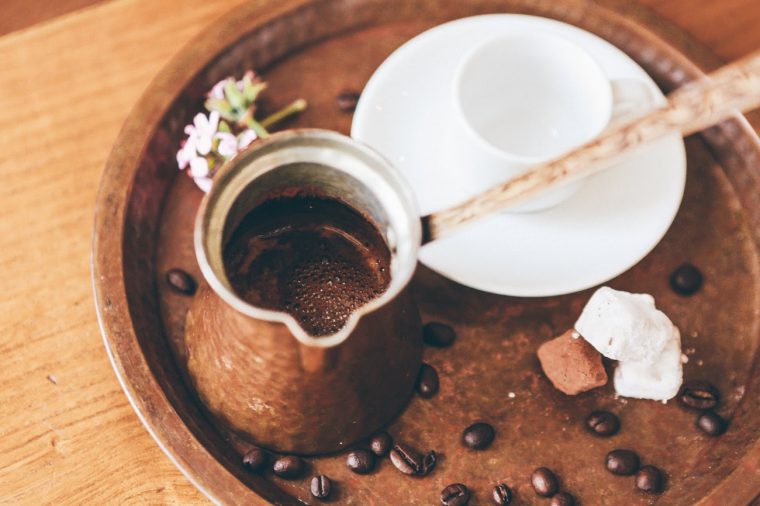
Greek coffee is lightly roasted and finely ground. The fine grind delivers concentrated antioxidants. Additionally, Greek coffee is prepared by boiling it rather than being brewed and filtered. This method or preparation produces less caffeine and extracts more healthy compounds, and also generates a naturally creamy and frothy coffee.
Ingredients
2 tsp Greek coffee, or to taste (see note)
2 cups cold water
NOTE: It’s essential to use Greek or Turkish style coffee. This coffee is ground so that it will dissolve in water. You may need to play around with the proportions to discover your preferred strength and flavor.
The Method
Add water and coffee to saucepan or briki. (A briki is a traditional coffee preparation vessel used throughout Greece and Turkey; you can find them in Middle Eastern shops or on Amazon.)
Stir until the grounds dissolve.
Slowly bring to a boil. When you see foam at the top, remove from heat.
Evenly divide the foam between two coffee cups, and then pour in remaining coffee over top. Wait for grounds to settle to bottom of cup before drinking.

Want to enhance the health benefits of coffee even more? Try enjoying it with friends!
Strong social relationships are a key contributing factor enabling people in the Blue Zones to thrive well into old age. Guess what’s at the core of many social gatherings? Coffee!
In Ikaria, Sardinia, and Nicoya, friends regularly gather to drink coffee. Whenever I travel to these Blue Zones, I commonly see groups of friends (especially older men) gathered around a table talking, playing games, and drinking coffee together. They’d be there for hours enjoying each other’s company. Similarly, in Okinawa, friends and Moai join together to drink tea.
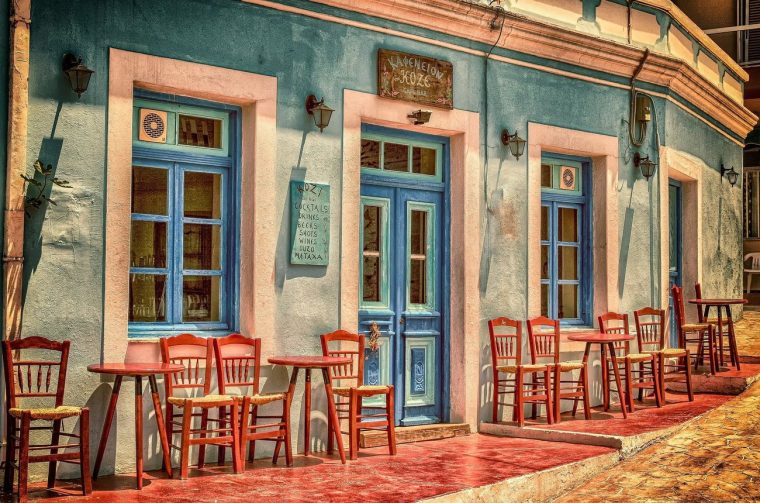
In many Western countries, we find it challenging to make the time to meet with friends and simply slow down to enjoy a simple cup of coffee or tea together. I say, it’s important to make time for moments like these with whoever is in your social circle. Try meeting with a few friends in the morning before work, or in the afternoon to take a break.
Coffee with friends: it’s good for the body and soul, and spending regular quality time together will help strengthen your relationships!
